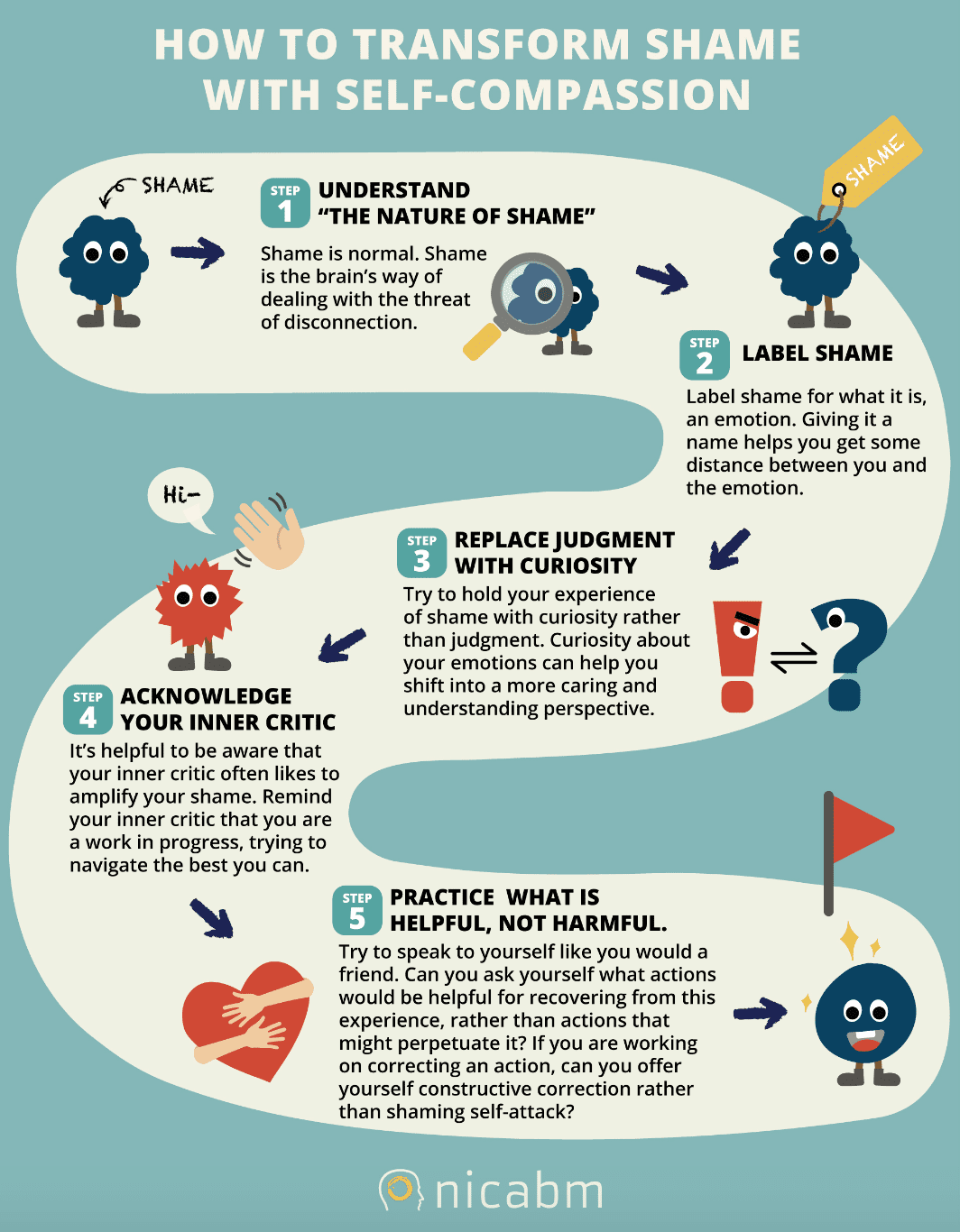Uncategorized
-
Understanding shame
The average human response to shame is to disengage from it. We don’t understand shame as an invitation to reflect, process and grow, we use it as a lock to the associated events and feelings. Could shame be the brain’s response to the threat of disconnection? What are the links between attachment, shame and anger? Could your understanding of this emotion empower you to live a more liberated life? If you live with a lingering or pounding sense of shame, please contact me. Here an infogram by NICABM.
-
Control Anxiety
We can manage and dare I say control our anxiety by the way we breathe. Let’s look at practicalities first and then I’ll move to briefly explain how it works. Practice Next time you feel the weight of anxiety on your chest try this: Breathe to the count of 7-11. That is 7 counts on the in-breath, pause and 11 on the out-breath. In other words, you exhale for longer than you inhale. I repeat – it is 7 in, pause and 11 out; 7 in, pause and 11 out. Remember to use your diaphragm when breathing. In this regard it is helpful to rest one hand on your stomach…
-
Is psychotherapy effective?
Yes, psychotherapy is effective. It doesn’t come as a surprise that a psychotherapist holds this position does it? How do I motivate this though? Many research studies, around 3000 would you believe (I didn’t count them), show that psychotherapy is effective. Talking therapy is as effective as medication for most mental health problems. In fact it is indicated that it’s best to go to a psychotherapist first before medicating. Very important here is that psychotherapy and medication show excellent results when combined in a treatment plan. I would therefore not support a view where psychotherapy replaces medication across the board. A therapist really has to assess each client’s needs individually.…
-
Systemic approach
Our wellness is dependent on the health of our micro and macro worlds. An illustration to explain systemic thinking: If a plant in my garden ails I will look for signs of disease as much as I would ask questions about its preferences for water, shelter, son and shade. We are all members of systems whether those systems are composed of friends, colleagues, team members, partners, families, neighbourhoods, tribes, nations, humanity itself, animals and our physical environment. A systemic approach to challenges look at these connections, how we function in them, and what meaning we ascribe to them. A careful process of inquiry will also show how introducing change into…


